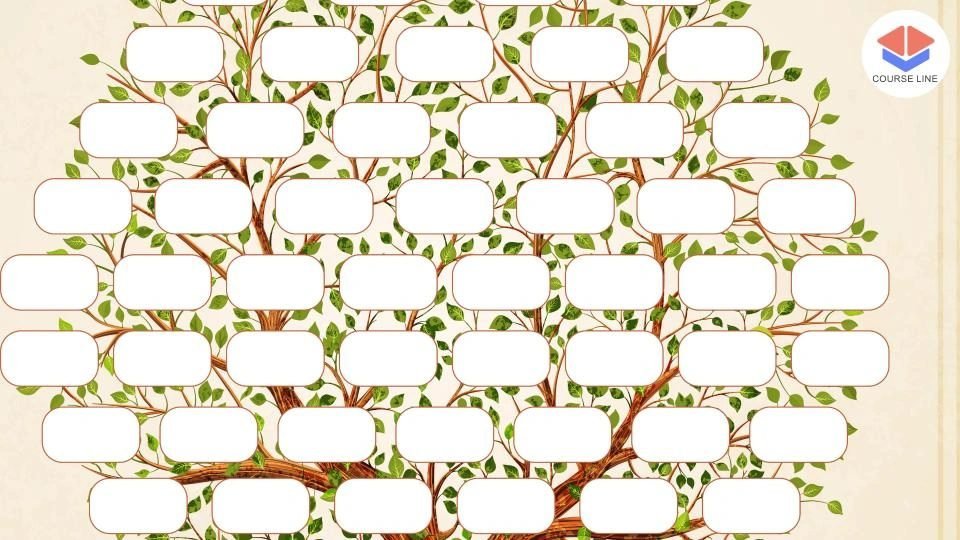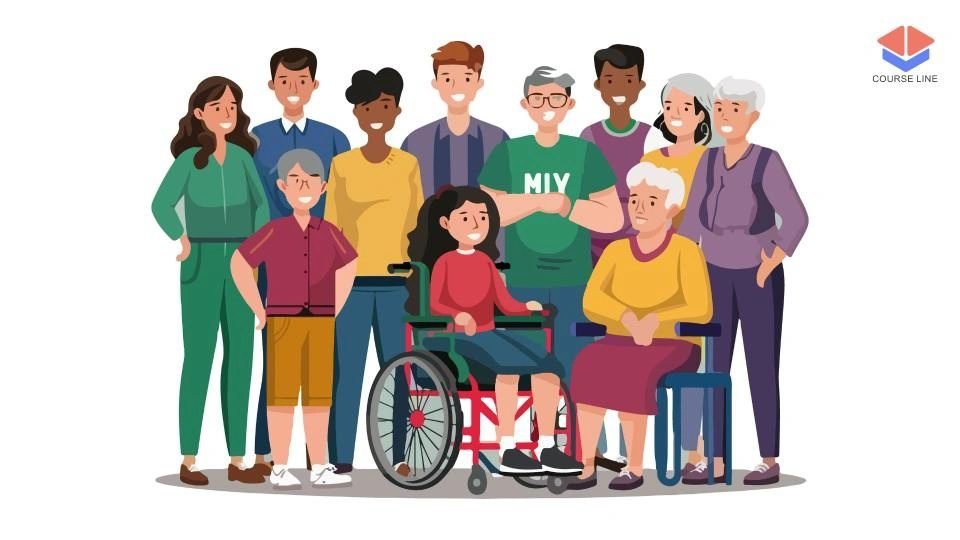Course Features
Price
Study Method
Online | Self-paced
Course Format
Reading Material - PDF, article
Duration
5 hours, 45 minutes
Qualification
No formal qualification
Certificate
At completion
Additional info
Coming soon
- Share
Overview
The Genealogy Level 3 Advanced Diploma offers an in-depth exploration of advanced genealogical research, blending traditional methods with modern tools and technologies. This course is tailored for learners who already have a foundational understanding of genealogy and want to expand their capabilities in tracing family histories, solving complex lineage challenges, and interpreting historical records with greater sophistication.
The course begins with an introduction to advanced genealogy and its growing importance in both personal and professional contexts. Learners will explore how to set focused research goals, use cutting-edge genealogy software, and manage large volumes of historical data. As the programme progresses, students are introduced to a wide array of advanced research techniques, including critical document analysis, the use of DNA testing, and the examination of military records, probate files, and specialized archives.
Family tree construction is addressed in detail, with lessons on incorporating genetic information, resolving gaps in documentation, and handling challenges such as adoptions, non-paternal events, or surname changes. Learners also discover how to create visually rich and complex family tree diagrams that are both accurate and accessible for presentation or publication purposes.
A key part of this diploma is understanding the cultural and geographic context of genealogical records. Students are guided in researching ancestors from diverse regions and backgrounds, exploring migration patterns, historical settlement trends, and the use of religious or ethnic records. This enables a more inclusive and globally-minded approach to genealogy.
Advanced problem-solving strategies are also covered, helping learners overcome common research obstacles known as “brick walls.” The course offers real-life case studies and encourages collaborative research practices using online databases, forums, and genealogy networks. Ethical and legal considerations are integrated throughout the course, emphasizing best practices in data privacy, intellectual property rights, and the responsible handling of sensitive family information.
In the final module, learners will explore career opportunities within the genealogy sector, including freelance research, archival consultancy, and forensic genealogy. Guidance is provided on building a professional portfolio, pursuing additional certification, and joining reputable genealogy associations to support lifelong learning and networking.
By the end of the course, students will be confident in applying a wide range of advanced genealogical techniques, supported by a strong ethical framework and a comprehensive understanding of historical and cultural contexts. This qualification opens doors to both personal mastery and professional opportunities in the dynamic field of family history research.
Who is this course for?
The Genealogy Level 3 Advanced Diploma offers an in-depth exploration of advanced genealogical research, blending traditional methods with modern tools and technologies. This course is tailored for learners who already have a foundational understanding of genealogy and want to expand their capabilities in tracing family histories, solving complex lineage challenges, and interpreting historical records with greater sophistication.
The course begins with an introduction to advanced genealogy and its growing importance in both personal and professional contexts. Learners will explore how to set focused research goals, use cutting-edge genealogy software, and manage large volumes of historical data. As the programme progresses, students are introduced to a wide array of advanced research techniques, including critical document analysis, the use of DNA testing, and the examination of military records, probate files, and specialized archives.
Family tree construction is addressed in detail, with lessons on incorporating genetic information, resolving gaps in documentation, and handling challenges such as adoptions, non-paternal events, or surname changes. Learners also discover how to create visually rich and complex family tree diagrams that are both accurate and accessible for presentation or publication purposes.
A key part of this diploma is understanding the cultural and geographic context of genealogical records. Students are guided in researching ancestors from diverse regions and backgrounds, exploring migration patterns, historical settlement trends, and the use of religious or ethnic records. This enables a more inclusive and globally-minded approach to genealogy.
Advanced problem-solving strategies are also covered, helping learners overcome common research obstacles known as “brick walls.” The course offers real-life case studies and encourages collaborative research practices using online databases, forums, and genealogy networks. Ethical and legal considerations are integrated throughout the course, emphasizing best practices in data privacy, intellectual property rights, and the responsible handling of sensitive family information.
In the final module, learners will explore career opportunities within the genealogy sector, including freelance research, archival consultancy, and forensic genealogy. Guidance is provided on building a professional portfolio, pursuing additional certification, and joining reputable genealogy associations to support lifelong learning and networking.
By the end of the course, students will be confident in applying a wide range of advanced genealogical techniques, supported by a strong ethical framework and a comprehensive understanding of historical and cultural contexts. This qualification opens doors to both personal mastery and professional opportunities in the dynamic field of family history research.
Requirements
The Genealogy Level 3 Advanced Diploma offers an in-depth exploration of advanced genealogical research, blending traditional methods with modern tools and technologies. This course is tailored for learners who already have a foundational understanding of genealogy and want to expand their capabilities in tracing family histories, solving complex lineage challenges, and interpreting historical records with greater sophistication.
The course begins with an introduction to advanced genealogy and its growing importance in both personal and professional contexts. Learners will explore how to set focused research goals, use cutting-edge genealogy software, and manage large volumes of historical data. As the programme progresses, students are introduced to a wide array of advanced research techniques, including critical document analysis, the use of DNA testing, and the examination of military records, probate files, and specialized archives.
Family tree construction is addressed in detail, with lessons on incorporating genetic information, resolving gaps in documentation, and handling challenges such as adoptions, non-paternal events, or surname changes. Learners also discover how to create visually rich and complex family tree diagrams that are both accurate and accessible for presentation or publication purposes.
A key part of this diploma is understanding the cultural and geographic context of genealogical records. Students are guided in researching ancestors from diverse regions and backgrounds, exploring migration patterns, historical settlement trends, and the use of religious or ethnic records. This enables a more inclusive and globally-minded approach to genealogy.
Advanced problem-solving strategies are also covered, helping learners overcome common research obstacles known as “brick walls.” The course offers real-life case studies and encourages collaborative research practices using online databases, forums, and genealogy networks. Ethical and legal considerations are integrated throughout the course, emphasizing best practices in data privacy, intellectual property rights, and the responsible handling of sensitive family information.
In the final module, learners will explore career opportunities within the genealogy sector, including freelance research, archival consultancy, and forensic genealogy. Guidance is provided on building a professional portfolio, pursuing additional certification, and joining reputable genealogy associations to support lifelong learning and networking.
By the end of the course, students will be confident in applying a wide range of advanced genealogical techniques, supported by a strong ethical framework and a comprehensive understanding of historical and cultural contexts. This qualification opens doors to both personal mastery and professional opportunities in the dynamic field of family history research.
Career path
The Genealogy Level 3 Advanced Diploma offers an in-depth exploration of advanced genealogical research, blending traditional methods with modern tools and technologies. This course is tailored for learners who already have a foundational understanding of genealogy and want to expand their capabilities in tracing family histories, solving complex lineage challenges, and interpreting historical records with greater sophistication.
The course begins with an introduction to advanced genealogy and its growing importance in both personal and professional contexts. Learners will explore how to set focused research goals, use cutting-edge genealogy software, and manage large volumes of historical data. As the programme progresses, students are introduced to a wide array of advanced research techniques, including critical document analysis, the use of DNA testing, and the examination of military records, probate files, and specialized archives.
Family tree construction is addressed in detail, with lessons on incorporating genetic information, resolving gaps in documentation, and handling challenges such as adoptions, non-paternal events, or surname changes. Learners also discover how to create visually rich and complex family tree diagrams that are both accurate and accessible for presentation or publication purposes.
A key part of this diploma is understanding the cultural and geographic context of genealogical records. Students are guided in researching ancestors from diverse regions and backgrounds, exploring migration patterns, historical settlement trends, and the use of religious or ethnic records. This enables a more inclusive and globally-minded approach to genealogy.
Advanced problem-solving strategies are also covered, helping learners overcome common research obstacles known as “brick walls.” The course offers real-life case studies and encourages collaborative research practices using online databases, forums, and genealogy networks. Ethical and legal considerations are integrated throughout the course, emphasizing best practices in data privacy, intellectual property rights, and the responsible handling of sensitive family information.
In the final module, learners will explore career opportunities within the genealogy sector, including freelance research, archival consultancy, and forensic genealogy. Guidance is provided on building a professional portfolio, pursuing additional certification, and joining reputable genealogy associations to support lifelong learning and networking.
By the end of the course, students will be confident in applying a wide range of advanced genealogical techniques, supported by a strong ethical framework and a comprehensive understanding of historical and cultural contexts. This qualification opens doors to both personal mastery and professional opportunities in the dynamic field of family history research.
-
- Overview of Genealogy Research 00:10:00
- Understanding the Importance of Advanced Genealogy 00:10:00
- Setting Research Goals and Objectives 00:10:00
- Utilizing Advanced Genealogy Software and Tools 00:10:00
-
- Exploring Primary and Secondary Sources 00:10:00
- Advanced Document Analysis and Interpretation 00:10:00
- Utilizing DNA Testing in Genealogical Research 00:10:00
- Researching Military Records and Other Specialized Archives 00:10:00
- Advanced Family Tree Building Techniques 00:10:00
- Incorporating DNA Matches into Family Trees 00:10:00
- Addressing Challenges in Family Tree Construction 00:10:00
- Creating Complex Family Tree Charts and Diagrams 00:10:00
- Identifying and Overcoming Genealogical Brick Walls 00:10:00
- Advanced Research Methodologies and Strategies 00:10:00
- Collaborative Research Techniques and Resources 00:10:00
- Case Studies and Practical Applications 00:10:00
- Exploring Career Paths in Genealogy and Related Fields 00:10:00
- Continuing Education and Certification Opportunities 00:10:00
- Building a Professional Genealogy Portfolio 00:10:00
- Networking and Professional Associations 00:10:00
- Premium Certificate 00:15:00

No Reviews found for this course.
Is this certificate recognized?
Yes, our premium certificate and transcript are widely recognized and accepted by embassies worldwide, particularly by the UK embassy. This adds credibility to your qualification and enhances its value for professional and academic purposes.
I am a beginner. Is this course suitable for me?
Yes, this course is designed for learners of all levels, including beginners. The content is structured to provide step-by-step guidance, ensuring that even those with no prior experience can follow along and gain valuable knowledge.
I am a professional. Is this course suitable for me?
Yes, professionals will also benefit from this course. It covers advanced concepts, practical applications, and industry insights that can help enhance existing skills and knowledge. Whether you are looking to refine your expertise or expand your qualifications, this course provides valuable learning.
Does this course have an expiry date?
No, you have lifetime access to the course. Once enrolled, you can revisit the materials at any time as long as the course remains available. Additionally, we regularly update our content to ensure it stays relevant and up to date.
How do I claim my free certificate?
I trust you’re in good health. Your free certificate can be located in the Achievement section. The option to purchase a CPD certificate is available but entirely optional, and you may choose to skip it. Please be aware that it’s crucial to click the “Complete” button to ensure the certificate is generated, as this process is entirely automated.
Does this course have assessments and assignments?
Yes, the course includes both assessments and assignments. Your final marks will be determined by a combination of 20% from assignments and 80% from assessments. These evaluations are designed to test your understanding and ensure you have grasped the key concepts effectively.
Is this course accredited?
We are a recognized course provider with CPD, UKRLP, and AOHT membership. The logos of these accreditation bodies will be featured on your premium certificate and transcript, ensuring credibility and professional recognition.
Will I receive a certificate upon completion?
Yes, you will receive a free digital certificate automatically once you complete the course. If you would like a premium CPD-accredited certificate, either in digital or physical format, you can upgrade for a small fee.
Course Features
Price
Study Method
Online | Self-paced
Course Format
Reading Material - PDF, article
Duration
5 hours, 45 minutes
Qualification
No formal qualification
Certificate
At completion
Additional info
Coming soon
- Share
Social Worker Level 3 Advanced Diploma
Course Line240£490.00Original price was: £490.00.£14.99Current price is: £14.99.Bushcraft Level 8 Advanced Diploma
Course Line238£490.00Original price was: £490.00.£14.99Current price is: £14.99.





